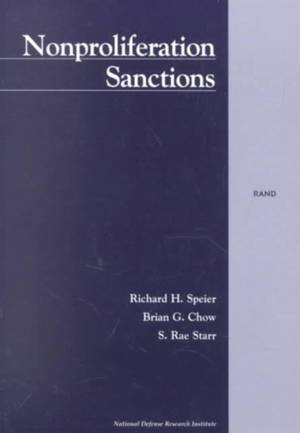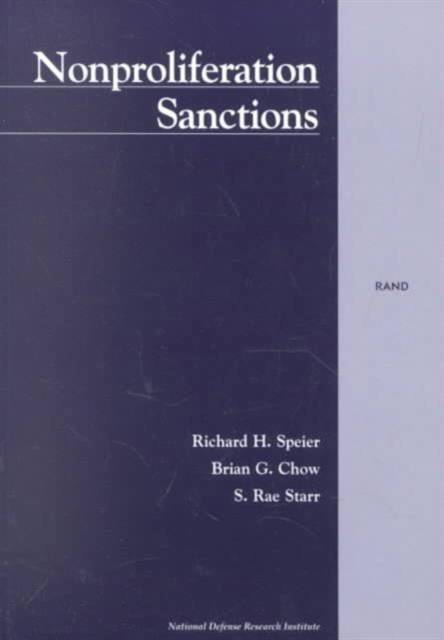
Bedankt voor het vertrouwen het afgelopen jaar! Om jou te bedanken bieden we GRATIS verzending (in België) aan op alles gedurende de hele maand januari.
- Afhalen na 1 uur in een winkel met voorraad
- In januari gratis thuislevering in België
- Ruim aanbod met 7 miljoen producten
Bedankt voor het vertrouwen het afgelopen jaar! Om jou te bedanken bieden we GRATIS verzending (in België) aan op alles gedurende de hele maand januari.
- Afhalen na 1 uur in een winkel met voorraad
- In januari gratis thuislevering in België
- Ruim aanbod met 7 miljoen producten
Zoeken
€ 30,95
+ 61 punten
Omschrijving
The danger of proliferation-of nuclear, biological, and chemical (NBC) weapons and missiles for their delivery-is appreciated by almost everyone. Since the 1970s, some of the most important instruments for combating this danger have been U.S. sanctions laws requiring penalties for acts contributing to proliferation. However, by the mid-1990s, a backlash had developed against a broad range of unilateral U.S. economic sanctions. This study examines the United States' use of sanctions against foreign entities to prevent NBC and missile proliferation. It begins with a review of the objectives and provisions of the various U.S. nonproliferation sanctions laws, and compares the legal provisions at each step of the sanctions process. It then reviews the history of the applications of sanctions against proliferation and the problems revealed by the experience, then explores alternatives for dealing with these problems, including possible actions by both Congress and the Executive Branch.
Specificaties
Betrokkenen
- Auteur(s):
- Uitgeverij:
Inhoud
- Aantal bladzijden:
- 298
- Taal:
- Engels
Eigenschappen
- Productcode (EAN):
- 9780833029409
- Verschijningsdatum:
- 23/04/2001
- Uitvoering:
- Paperback
- Formaat:
- Trade paperback (VS)
- Afmetingen:
- 175 mm x 228 mm
- Gewicht:
- 408 g

Alleen bij Standaard Boekhandel
+ 61 punten op je klantenkaart van Standaard Boekhandel
Beoordelingen
We publiceren alleen reviews die voldoen aan de voorwaarden voor reviews. Bekijk onze voorwaarden voor reviews.









